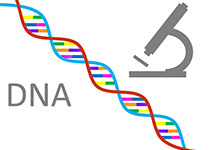Diabetes (diabetes mellitus, DM) is a kind of due to insufficient insulin absolute or relative endocrine metabolic disease characterized by high blood sugar. It has become a global epidemic with an incidence of 6% in China. Diabetic retinopathy (DR) is one of the common complications of diabetes, which is increasing year by year in China.DM animal model plays an important role in the study of DR, and is the basis for the study of the pathogenesis, clinical manifestations and prevention and treatment programs of DR. It can be divided into four types: chemical-induced model, spontaneous hereditary animal model, partial pancreatectomy model and transgene model.

US researchers have used genetically modified technology to reproduce complications such as diabetes and retinopathy and kidney failure in pigs. The reproduction of these diseases in large mammals will help to study the mechanism of complications and the corresponding treatment methods.
A lack of insulin, which lowers blood sugar levels, can lead to diabetes. High blood sugar can damage blood vessels and nerves, leading to complications that can lead to blindness or kidney failure.
Using the latest genetic engineering techniques, a team at the University of California has genetically engineered pigs to produce less insulin and develop diabetes in humans. The blood vessels of the sick pigs also became weak after long-term feeding. Symptoms of retinal hemorrhage continue to worsen, and cataracts appear. The kidneys are also failing.
Previous research on diabetes drugs has focused on experimental mice, but because the weight and longevity of the mice differ from that of humans, the drug is not as effective as that of mammals like pigs, whose viscera size and blood sugar levels are similar to those of humans, the team said. The transgenic pig model developed by the team is more suitable for this study and will help to understand the mechanism of diabetes and complications.







